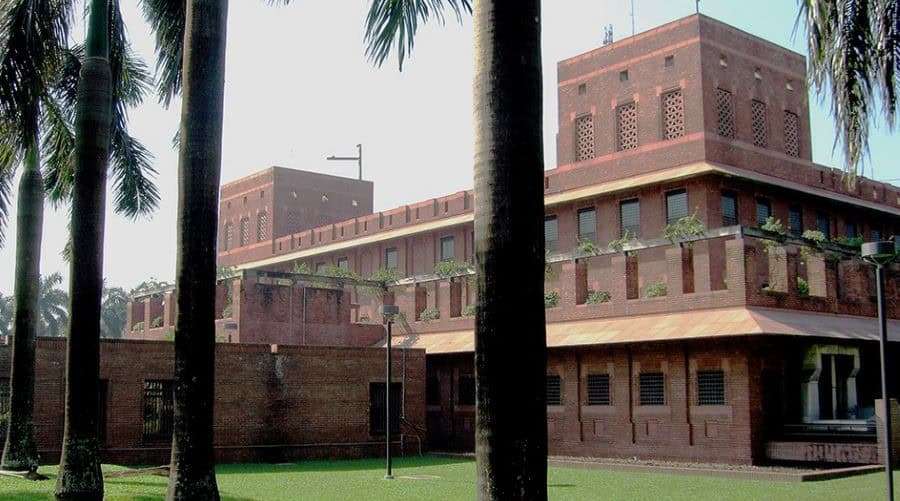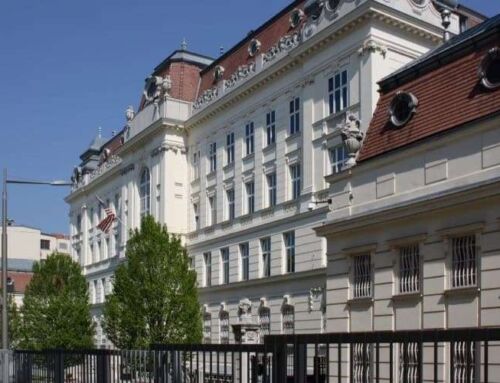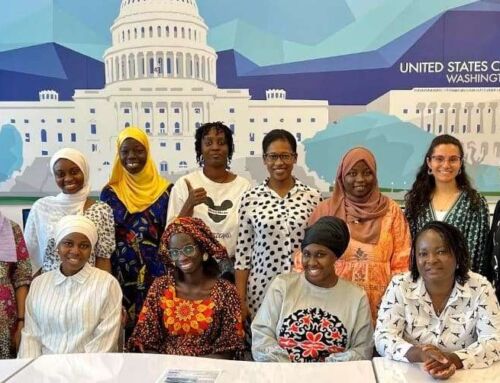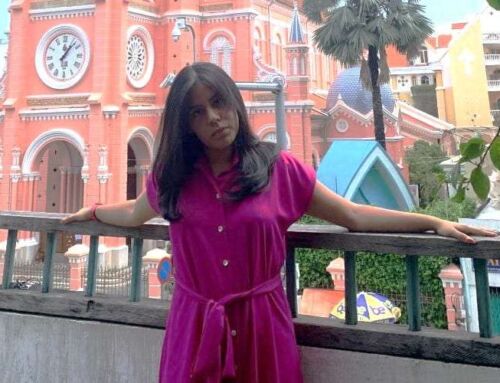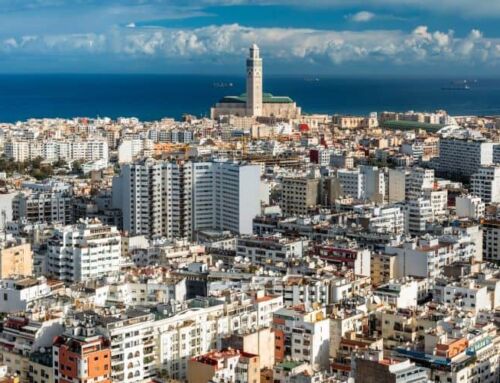Courtney Jarrett became a Diplomatic Technology Officer after completing the FAIT Fellowship with the 2019 cohort. He is currently posted at the U.S. Embassy Dhaka, Bangladesh.
Tell us a little about yourself – where are you from, where did you go to college and what was your major?
I grew up in Mountain Dale, New York, a small town where everyone knew each other, and my upbringing on a commune offered a unique, off-the-grid lifestyle, far removed from the mainstream. Eager to explore beyond those boundaries, I joined the Marine Corps, drawn not only by the sense of adventure but, admittedly, by the sharp uniforms too. While serving, I pursued my undergraduate degree in Business Administration and Human Resources from the Florida Institute of Technology. It was during my time abroad in Tbilisi, Georgia, that I learned about the FAIT program from a colleague, an opportunity that led to a fellowship and my master’s degree in Information Technology from Virginia Tech. Now, I’m continuing my academic journey at New York University, pursuing a doctorate focused on the cross-section of information management governance and knowledge management, a perfect blend of my passion for leadership and technology.
What made you decide that you wanted to work in technology for the Foreign Service?
I was drawn to the Foreign Service lifestyle early on, driven by a deep curiosity and the humble beginnings that shaped my perspective on the world. A defining moment came in third grade when my teacher awarded me a certificate that read, “You are the ambassador of the class.” That simple remark planted a seed, sparking my lifelong interest in international relations and diplomacy.
As my career evolved, I realized how crucial technology is in shaping diplomacy’s future. Technology, at its core, applies scientific knowledge to enhance human life and reshape environments. I’m captivated by the prospect of diplomacy becoming even more impactful when paired with the right technological application. This intersection between technology and global diplomacy inspired me to pursue greater responsibility in the Foreign Service, where I can use my expertise to make a tangible impact on international relations.
What impact has the FAIT Fellowship had on your life, personally or professionally?
The FAIT Fellowship has profoundly influenced both my personal and professional journey. On a professional level, it immersed me in an environment where relationship-building is as critical as technical expertise. Through the fellowship, I gained access to a network of professionals across various disciplines, learning from their insights and experiences. These connections have been invaluable in deepening my understanding of technology’s impact on diplomacy while opening doors to new career opportunities. Personally, the fellowship introduced me to lifelong friends who continue to be my sounding board, offering guidance and support as I navigate my career. The supportive community that FAIT has provided has been a cornerstone of my growth.
Where was your first post and what was your experience when you first got there?
My first post was at U.S. Embassy New Delhi, and I’m currently stationed at Embassy Dhaka. In New Delhi, the operational pace was intense because it is the cornerstone of the Indo-Pacific strategy. There was a steady stream of congressional, cabinet-level, and even presidential visits, as well as programmatic and thematic visitors, involved in various initiatives. This experience gave me a front-row seat to the Foreign Service on a large scale, broadening my understanding of global diplomacy. I had the privilege of playing key roles in historic events, such as India’s debut as a host of G20 and multiple ministerial dialogues. Rather than feeling nervous when I first arrived, I was energized and eager to learn about the diverse missions of different agencies overseas and the extent of interoperability between them and the Department of State.
Was there anything that surprised you about working in the Foreign Service or working in your role as a Diplomatic Technology Officer?
What surprised me most about working in the Foreign Service as a Diplomatic Technology Officer was how much the role focuses on information technology governance rather than purely technical work, although this can vary depending on the post. I also found there are many opportunities to get involved in programmatic functions beyond technology which is heavily dependent on your interest and active pursuit. One key lesson I’ve learned is that success in this field is built on strong management strategies for managing people, programs, or processes. This, at times, feels like an executive technology job because you have so much influence. I’ve also come to understand that while we don’t directly shape external policy, our contributions to internal policy are crucial to the mission’s success. Under the management umbrella — general services, facilities, human resources, community, technology, and finance — we collectively generate the most internal policy that ensures the smooth operation and overall well-being of the mission.
Tell us about the Foreign Service lifestyle – what are the pros and cons?
The Foreign Service lifestyle offers remarkable advantages, such as the chance to participate in historic events, consort with influential celebrities, and gain insight into governmental functions. One of the most rewarding aspects is the ability to form meaningful connections with people from many different backgrounds, many of whom become like family over time. This global network, coupled with the dynamic nature of the work, makes the Foreign Service a truly unique career path. The constant cycle of forming and breaking relationships with each move is a unique challenge of this lifestyle. This becomes even more complex when you have a family, as frequent relocations can make it difficult to establish lasting roots. Additionally, the bureaucratic nature of the work means there are numerous administrative obligations that must be fulfilled, which can sometimes feel burdensome.
Do you have any advice for those thinking about applying for the FAIT Fellowship?
For those considering applying for the FAIT Fellowship, my top advice is to be authentic and intentional in everything you do. Focus on highlighting your achievements with impact, there’s no need to embellish, but don’t hesitate to take pride in what you’ve accomplished. Your experiences are unique and bring valuable perspectives not just to the Department of State, but also how we represent the United States of America. Remember, you have the ability to make a real difference, and the fellowship is an opportunity to do just that. Additionally, refining your writing and communication skills is essential. Being able to clearly and flexibly articulate your thoughts will not only help in the application process but will serve you well throughout your career.

